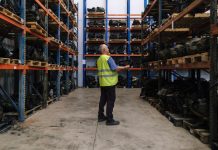INDIANAPOLIS – Three school districts at various stages of their propane school bus journeys shared their experiences in an STN EXPO panel.
“We’re all on this pathway to zero,” declared Steven Whaley, director of autogas business development for the session sponsor, the Propane Education & Research Council (PERC).
He shared four traits of an alternative fuel adoption successful: it must be cleaner than diesel, be cheaper, perform just as well, and be plentiful in supply. He explained more about the clean, affordable, safe, widely used, American-made fuel that is propane, which costs less per gallon than diesel and does not require the additives for emissions management that diesel buses do. A propane bus was also found to be 96 percent cleaner than a clean diesel bus by researchers at the University of West Virginia.
If there was one theme repeated throughout the Green Bus Summit it was that infrastructure is key – the first thing to consider before going bus shopping. Whaley reassured attendees that propane infrastructure is straightforward to set up and run. PERC partners also offer a solar- and wind-powered portable propane fueling station that also powers electric charging and off the grid.
Entire Fleet Converted
Kay Cornelius is director of transportation for rural St. Louis County Schools in Minnesota, with a service area of just over 4,000 square miles and where adverse weather conditions occur regularly. She said she was initially against propane but after conducting much research eventually agreed to her first propane bus in 2016 on a trial basis. She shared that she got into propane for the lower total cost of ownership and has seen the numbers stack up favorably, eventually converting her whole fleet.
“Educate yourself. Learn how it works,” she encouraged. She relayed that she networked with nearby districts to lock in a lower price from propane providers.
Partial Adoption
Township High School District 211 is the largest high school district in Illinois. Director of Transportation Diana Mikelski said 61 of her 164 buses are propane. When getting started, she had to explore her options and face pushback from mechanics. She confirmed that Blue Bird and ROUSH CleanTech provide amazing support. Propane doesn’t blow up like in the movies, she quipped, and fueling is a breeze.
Her fuel savings is half a million dollars, plus maintenance costs. She said her drivers now love the propane buses as they run smoothly even in cold weather. The community has even noticed the cleaner smell and improved student health, she said.
“This is so easy,” she underscored. “We’re fully invested in going 100 percent with this.”
Starting Out
Michael McCusker, senior financial analyst for the “remarkably large and underfunded” School District of Philadelphia’s Department of Transportation Services, said that electric and CNG have been ruled out and the district is looking to switch about 10 percent of its fleet to propane.
“You learn and you make decisions,” he said of the journey ahead of the district.
He added that the district is confident that propane buses can handle the narrow streets and hills that school buses must navigate in the city.
Related: Propane School Buses Ideal for Real-World Applications, STN EXPO Indy Panel Concludes
Related: WATCH: Propane Education & Research Council at the ACT Expo
Related: Should student health outcomes be the leading factor when deciding on new school bus purchases?
Related: EPA Advances Reduced Greenhouse Gas Emissions Goals, More Stringent Standards
Related: (STN Podcast E157) Earth Day: Getting Help Greening Your Yellow Bus Fleet
Related: (Recorded Webinar) Energy for Everyone: How Propane Autogas is Revolutionizing School Transportation
Must-Know
Although the current federal fuel tax credit for propane is good through the end of 2024, some states like Indiana add a yearly charge to recoup lost revenue, noted state director Michael LaRocco. A piece of good news, Whaley added, is that the EPA’s Clean School Bus Program includes more funding for propane buses.
Abby Brown, a transportation research project lead at the U.S. Department of Energy’s National Renewable Energy Laboratory, shared from the audience that the Alternative Fuel Data Center website includes details on fuel tax credits available to states.
While there may be community concerns about the safety of propane, Whaley related a project in which law enforcement used live gunfire and even flares to determine that propane tanks are indeed safe.
Mikelski shared that she answered community questions and dispelled fears in the early stages of adoption. After years of running propane school buses in her fleet, she confirmed that the perception has improved.
It’s For Everyone
An attendee with a small fleet asked about the selling points, citing the skepticism of his superiors. Mikelski responded that cost savings, cleaner air and lower noise levels proved that propane school buses are a good idea for districts of any size.
Cornelius shared that St. Louis County Schools was able to start performing extra bus maintenance, such as repairing rust on the undercarriage, due to the cost savings that propane buses had achieved. She said that comparing the cost per mile and looking at the numbers per bus helps a district get a sense of cost savings, no matter how small it is.
WATCH: STN Publisher Tony Corpin talks to Steven Whaley about the session.
















